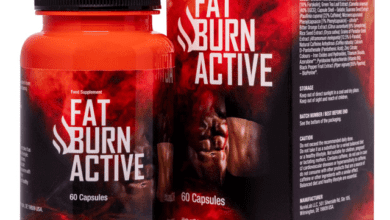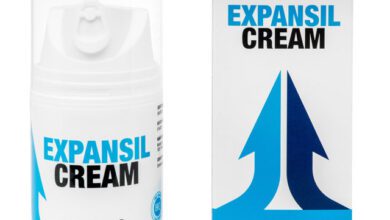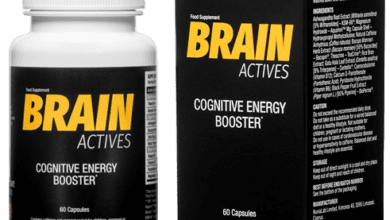
Recovery Nutrition: What to Eat After a Tough Workout
Recovery Nutrition: What to Eat After a Tough Workout
Exercise is a vital component of a healthy lifestyle, but it’s not just about the work you put in during your workout; it’s also about how you support your body’s recovery afterward. Proper recovery nutrition is essential to help your muscles repair and grow, replenish energy stores, and reduce the risk of injury. In this article, we’ll explore the importance of recovery nutrition and provide guidance on what to eat after a tough workout to maximize your gains and overall well-being.
The Science Behind Post-Workout Nutrition
Before diving into specific foods, let’s understand the science behind post-workout nutrition. When you exercise, especially high-intensity or resistance training, you put stress on your muscles, deplete energy stores, and may cause micro-tears in muscle fibers. Your body needs the right nutrients to repair and build stronger muscles, restore glycogen (stored energy), and reduce inflammation.
The key components of post-workout nutrition are:
1. Protein
Protein is crucial for muscle repair and growth. After a workout, your muscles are more receptive to protein, making it an ideal time to consume this nutrient. Protein provides the amino acids needed to rebuild damaged muscle tissue, ultimately leading to increased muscle mass and improved strength.
2. Carbohydrates
Carbohydrates are your body’s primary source of energy. During exercise, your glycogen stores get depleted, and consuming carbohydrates helps replenish them. This is essential for preventing fatigue and ensuring you have enough energy for your next workout.
3. Hydration
Sweating during exercise leads to fluid loss, potentially causing dehydration Adequate hydration is essential for overall health and performance. After your workout, rehydrate by drinking water or consuming hydrating foods.
4. Micronutrients
Vitamins and minerals play a vital role in various physiological processes, including muscle contraction and recovery. Ensure you get a variety of micronutrients through a balanced post-workout meal.
Timing Matters: When to Eat After a Workout
The timing of your post-workout meal matters because your body is most receptive to nutrients immediately after exercise. Ideally, aim to consume your recovery meal within 30 minutes to two hours after your workout to maximize its benefits. This window of opportunity is when your body is most efficient at replenishing glycogen and repairing muscle tissue.
What to eat after a hard workout
Now that we understand the importance of post-workout nutrition and the timing involved, let’s explore What to eat after a hard workout:
1. Lean Protein Sources
Protein is essential for muscle repair and growth, making it a crucial component of your post-workout meal. Opt for lean protein sources like:
- Chicken breast: A low-fat, low-fat source of protein.
- Salmon: Rich in omega-3 fatty acids and high-quality protein.
- Greek yogurt: Contains protein and probiotics for digestion.
- Tofu: A plant-based protein option for vegetarians and vegans.
- Eggs: Provide complete protein and essential nutrients.
2. Complex Carbohydrates
Replenishing glycogen stores is vital for energy recovery. Choose complex carbohydrates like:
- Brown rice: A whole grain with fiber and nutrients.
- Quinoa: Contains protein, fiber, and various vitamins and minerals.
- Sweet potatoes: High in vitamins and complex carbohydrates.
- Oatmeal: A source of fiber and slow-release energy.
- Whole-grain pasta: Offers sustained energy and fiber.
3. Fruits and Vegetables
Fruits and vegetables are rich in vitamins, minerals, and antioxidants, which aid in reducing inflammation and supporting overall recovery. Some excellent options include:
- Berries: Packed with antioxidants to combat exercise-induced oxidative stress.
- Spinach: A leafy green rich in iron and vitamins.
- Bananas: High in potassium to help prevent muscle cramps.
- Oranges: Provide vitamin C to boost immune function.
- Avocado: Contains healthy fats for joint health.
4. Healthy Fats
Don’t skimp on healthy fats, as they play a role in reducing inflammation and supporting joint health. Incorporate foods like:
- Nuts and Nuts: High in healthy fats, protein and fiber.
- Olive Oil: Source of monounsaturated fats and antioxidants.
- Fatty fish: Rich in omega-3 fatty acids for anti-inflammatory benefits.
- Nut butter: A tasty option for healthy fats and protein.
5. Hydration
Rehydrating after exercise is essential, especially if you’ve sweated a lot. Water is the most straightforward choice, but you can also opt for:
- Coconut water: contains natural electrolytes such as potassium.
- Sports drinks: Provide electrolytes for rapid rehydration.
- Fruit-infused water: Adds flavor and nutrients to your hydration routine.
- Fruit-infused water: Adds flavor and nutrients to your hydration routine.
Sample Post-Workout Meal Ideas
Now that we’ve covered the essential components of a post-workout meal, let’s put it all together with some meal ideas:
1. Grilled Chicken Salad
- Grilled chicken breast for lean protein
- Mixed greens, spinach, and cherry tomatoes for vitamins and fiber
-
Quinoa or brown rice for complex carbohydrates
- A drizzle of olive oil and balsamic vinegar for healthy fats
2. Smoothie Bowl
- Greek yogurt for protein
- Mixed berries for antioxidants
- Banana for potassium
- Nut butter for healthy fats
- Topped with granola for added crunch and carbohydrates
3. Salmon and Sweet Potato
- Baked salmon for high-quality protein and omega-3s
- Roasted sweet potatoes for complex carbohydrates
- Steamed broccoli or asparagus for added vitamins and fiber
4. Veggie Stir-Fry with Tofu
Tofu for plant-based protein
A mix of colorful vegetables like bell peppers, broccoli, and carrots for nutrients
Served with brown rice or quinoa for complex carbohydrates
Supplements and Shakes
While whole foods should be your primary source of post-workout nutrition, supplements and shakes can be convenient options, especially when you’re on the go or have specific dietary needs. Protein shakes, for example, can be an effective way to quickly deliver protein to your muscles. Just be sure to choose high-quality supplements without excessive added sugars or artificial ingredients.
Conclusion
Recovery nutrition is a critical part of any fitness routine. What you eat after a tough workout can significantly impact your muscle growth, energy levels, and overall well-being. Focus on a balanced meal that includes lean protein, complex carbohydrates, fruits and vegetables, healthy fats, and adequate hydration to optimize your recovery process. Remember that consistency in your post-workout nutrition will lead to better performance and long-term fitness success. So, don’t forget to refuel your body after that intense workout session – it’s the key to progress and feeling your best.
Read this article




